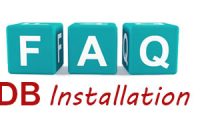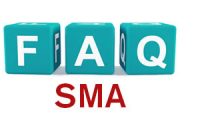- Why get a campus Mnova License?
- My department is small, are there options for less than 150 users?
- I’m interested but I’m not sure if my department will approve this purchase.
- Is there any physical shipment?
- This looks like it will be a nightmare to administer…
- What does the license entitle to?
- How can I know who is using the Campus license?
- Who will have access to the Campus license?
- Is there any way we can ban users?
- Do users have to be named?
- What happens when a student leaves the University?
- Some of my students have Mac computers, others have Windows. Is this an issue?
- So, after installing Mnova on their laptops, will students be able to use Mnova at home?
- Is a Campus license the same as concurrent/ floating licenses?
Why get a campus Mnova License?
Campus licenses are specifically designed for Universities with a large number of potential users. Students, researchers all can work anytime, anywhere, with the software they need for their task, even if they don’t have a network connection (provided that they have registered beforehand).
My department is small, are there options for less than 150 users?
Sure, we have options for smaller Campuses. We call them “Mini Campus”. Simply let us know the number of potential users and we will make an offer that is tailored to your needs.
I’m interested but I’m not sure if my department will approve this purchase.
We will be happy to set up a three-month trial of the Campus license for the plug-ins of your choice. We would be glad to answer your questions or arrange an online meeting to demo the software and answer your specific questions. Just contact us
Is there any physical shipment?
No, Mnova is delivered electronically.
This looks like it will be a nightmare to administer…
The MLicServer would be installed on a computer that works as a server. This computer (located at your University) will need to have internet connection at least every 90 days, but we recommend that the server has permanent internet connection.
The MLicServer has been developed by us, it is very easy to install and maintain and can be put on Windows, Mac or Linux machines. Your users renew their license every 90 days. If they fail to do so then that license key becomes available for another user. As an administrator you don’t have to do anything!
- How to install a License Server (Mac)
- How to install a License Server (Linux)
- How to install a License Server (Windows)
What does the license entitle to?
This type of license will give your faculty, researchers and students access to the same platform to process, visualize and report NMR and (optionally) LC/GC/MS data; independently of the NMR/MS equipment they are working with and the OS installed on their computers (Windows, Mac or Linux). So all students and PhD’s at your faculty will have the opportunity to work with Mnova, which is now state of the art NMR software and is becoming the standard in pharmaceutical and chemical industries.
How can I know who is using the Campus license?
A campus license is controlled by a license server. So, if you are the license administrator of a campus license you will be able to enable or restrict the access to Mnova to specific users by accessing the License Server Graphical User Interface. That way you’ll be sure about who is using the software. The server registers each client machine the first time that client machine connects to it by running Mnova.
Who will have access to the Campus license?
Any member of your University with access to the network (it is not defined by email address, etc).
Is there any way we can ban users?
The license server administrator could always knock machines off the server if a decision was made that some licenses are needed and that some specific machines should not have them, so this allows you to circumvent the 90 day period if you needed licenses quicker.
Do users have to be named?
No, they just need to connect to the server.
What happens when a student leaves the University?
Mnova Campus licenses are designed to take care of people leaving at the end of their studies, as they fall off after 3 months, ready for the new academic year, and also to take care of students who may potentially activate the software out of curiosity but end up not using it. If a student goes longer than 3 months without being in the campus network and using Mnova, the license will be released and another student can use it.
Some of my students have Mac computers, others have Windows. Is this an issue?
Not at all. Mnova is a multiplatform software. The license provided will work on both OS (even on Linux machines).
So, after installing Mnova on their laptops, will students be able to use Mnova at home?
Once registered, users can use the software within the institution, whilst connected to the server, but also whilst not connected to the server ( at home, travelling...), as each time the client connects to the server a 90 day clock is started which will allow 90 days of software usage without connection.
Is a Campus license the same as concurrent/ floating licenses?
The campus license has one fundamental advantage over the concurrent license: The license server is set up in such a way that a client machine can validate and then disconnect and continue to run the software for up to 90 days without seeing the server. This is very convenient for people to be able to use the software away from site (at conferences, home during summer recess or at PHD writing time). Another advantage is that should a user leave with a machine, they would automatically lose use of the software and release the installation after 90 days. You can find more about concurrent licenses here.



